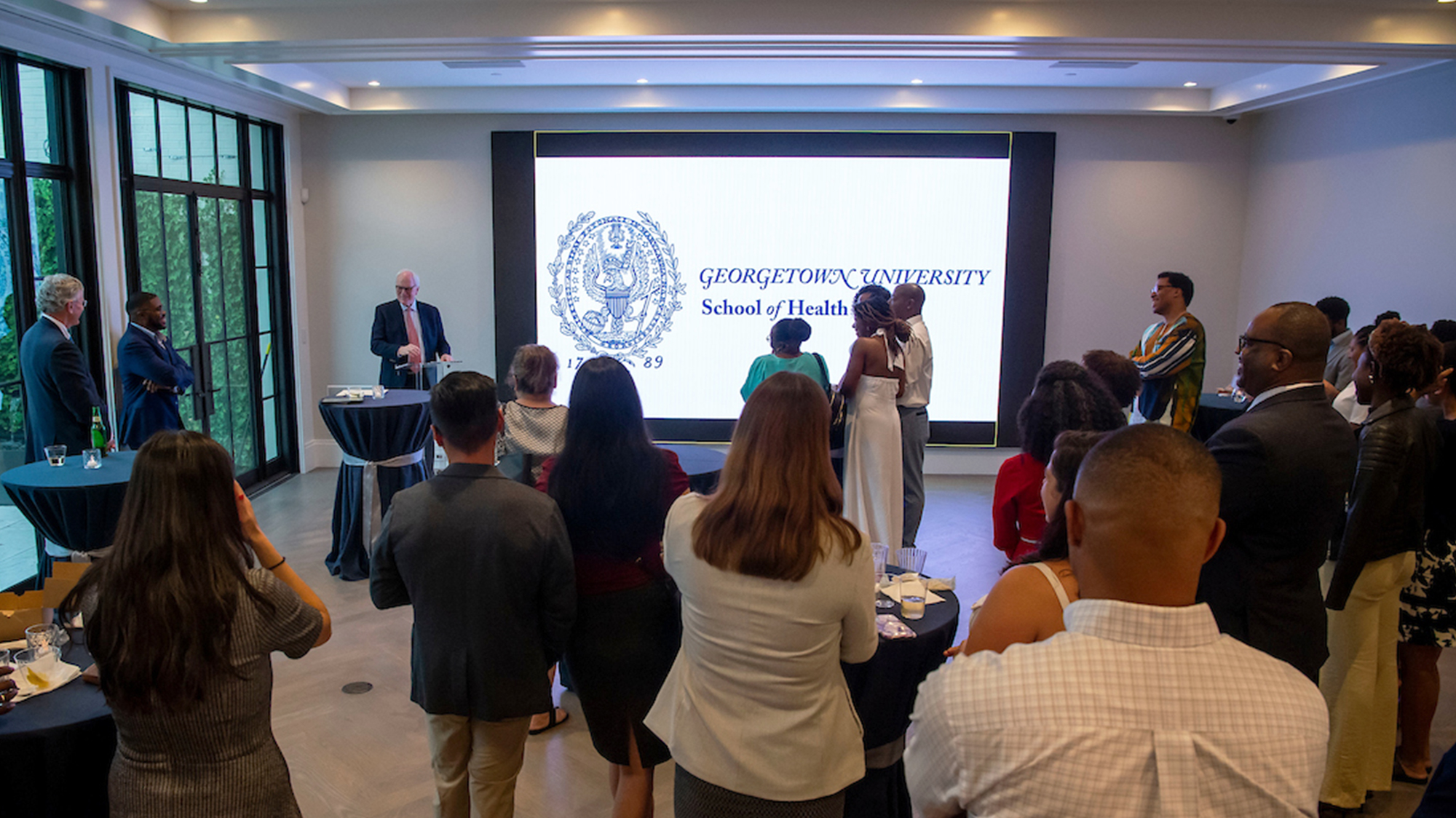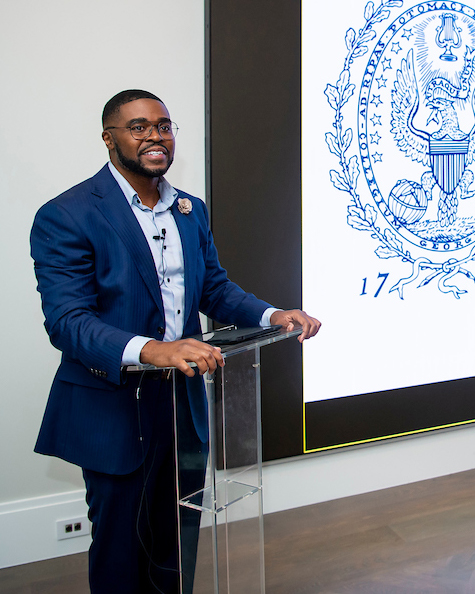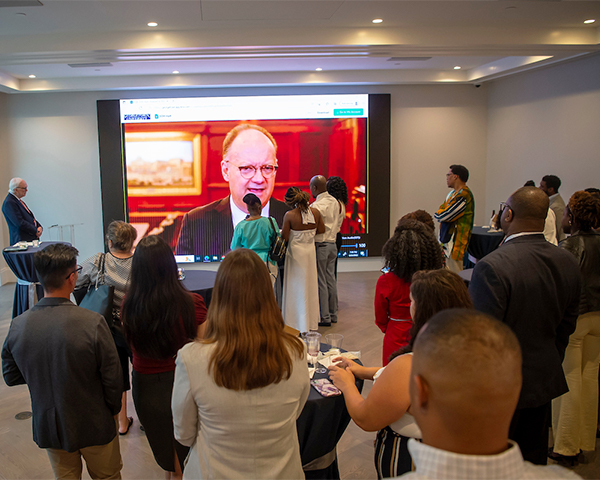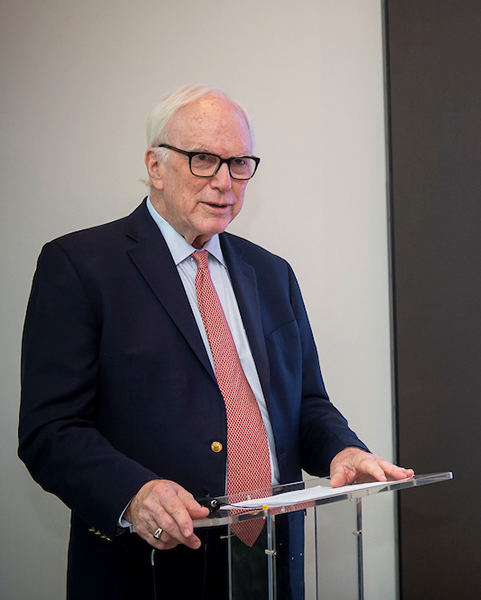Washington-area Health Leaders Gather for School of Health Celebration

Posted in GUMC Stories | Tagged health disparities, School of Health
(July 1, 2022) — Leaders from Washington-area foundations, organizations and agencies engaged in work to alleviate health disparities joined with friends, family and Georgetown colleagues for an early celebration of the new School of Health launching July 1.

The gathering in Georgetown on June 23 had been postponed in April due to COVID and was initially planned to mark the critical publication of an article by the school’s new dean and event host, Christopher J. King, PhD, MHSc, FACHE, along with colleagues.
That article, “Race, Place, and Structural Racism: A Review of Health and History in Washington, DC,” published in the February 2022 “Racism & Health” issue of Health Affairs, examines the history of local and federal policies that have disproportionately impacted the health and well-being of Black residents from the District’s founding in 1790 through today.

King told guests that several conversations with area health leaders following the publication led him to recognize the “opportunity to convene and build a community of scholars, practitioners and leaders whose work is at the intersection of race, place and health in the District of Columbia.”
Co-author Derek Griffith, PhD, co-founder and co-director of Georgetown’s Racial Justice Institute and professor of health management and policy at the new school, reinforced the spirit of collaboration needed to address entrenched health disparities locally, nationally and globally.
“We’re trying to build capacity at all of those levels,” he said. “We’re trying to build networks and also build relationships with folks in the DMV. … We’re not trying to take over this space. We are trying to work with those who are already doing [the work].”
‘New Phase’ of Work
King said the new School of Health’s mission paired well with the evening’s original intent, allowing him an important opportunity to introduce his vision for the school. In May, King was named its inaugural dean by Georgetown President John J. DeGioia, who shared recorded remarks.

“The launch of the School of Health represents a new phase of our work to positively impact the health of people around the world,” said DeGioia in a video message played for attendees. “There is tremendous promise and possibility among our students, staff and faculty working together across all of our campuses. We look forward to unlocking this potential. And I’m deeply grateful to Dean Christopher King for taking on this important leadership role.”
In December 2020, DeGioia announced the decoupling of the School of Nursing & Health Studies into two standalone schools: the School of Health and the School of Nursing, launching on July 1.
The creation of both schools sends a very important signal about the importance placed on health for the future goals of the university, said Edward B. Healton, MD, MPH, executive vice president of health sciences at the medical center. The two new schools join the School of Medicine on the Georgetown University Medical Center campus.
A ‘Common Purpose’

“We also want to recognize our common purpose, because the mission of the School of Health, the priority of Georgetown University Medical Center and the University, and the work of many of you in this room all focus on the importance of achieving health equity and of addressing health disparities,” Healton said.
Healton pointed out that health outcomes, mortality and morbidity, and the prevalence of disease is dramatically different for those who live a short “subway ride away” from the reception. “There’s a lot of important work to do.”
“Health is shaped by the conditions in which we live,” King explained, highlighting the important contributions that can be made by the three current departments that make up the new School of Health: Human Science, Global Health and Health Management and Policy.
“We will evolve. We are intentionally named School of Health for a reason,” King continued. “It gives us permission to be dynamic. It gives us permission to be creative. It gives us permission to be transformational.”
